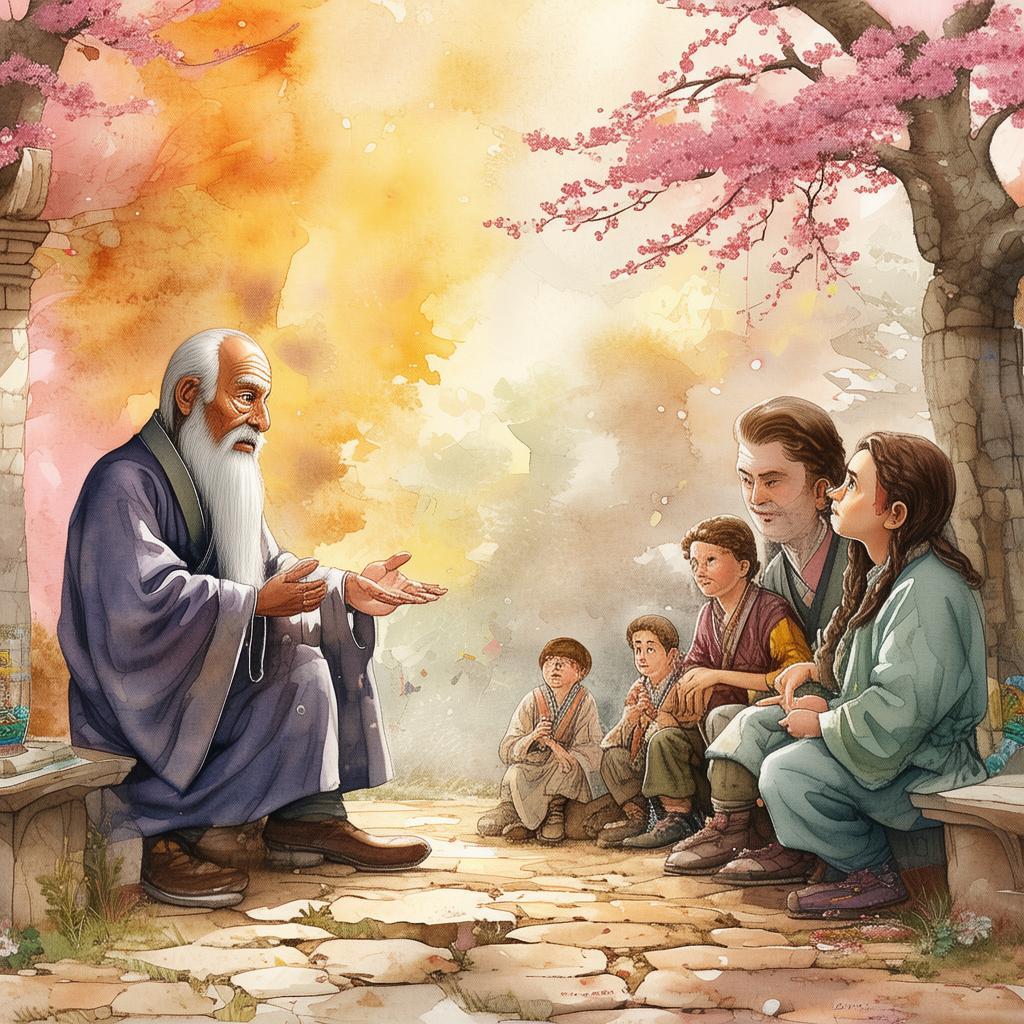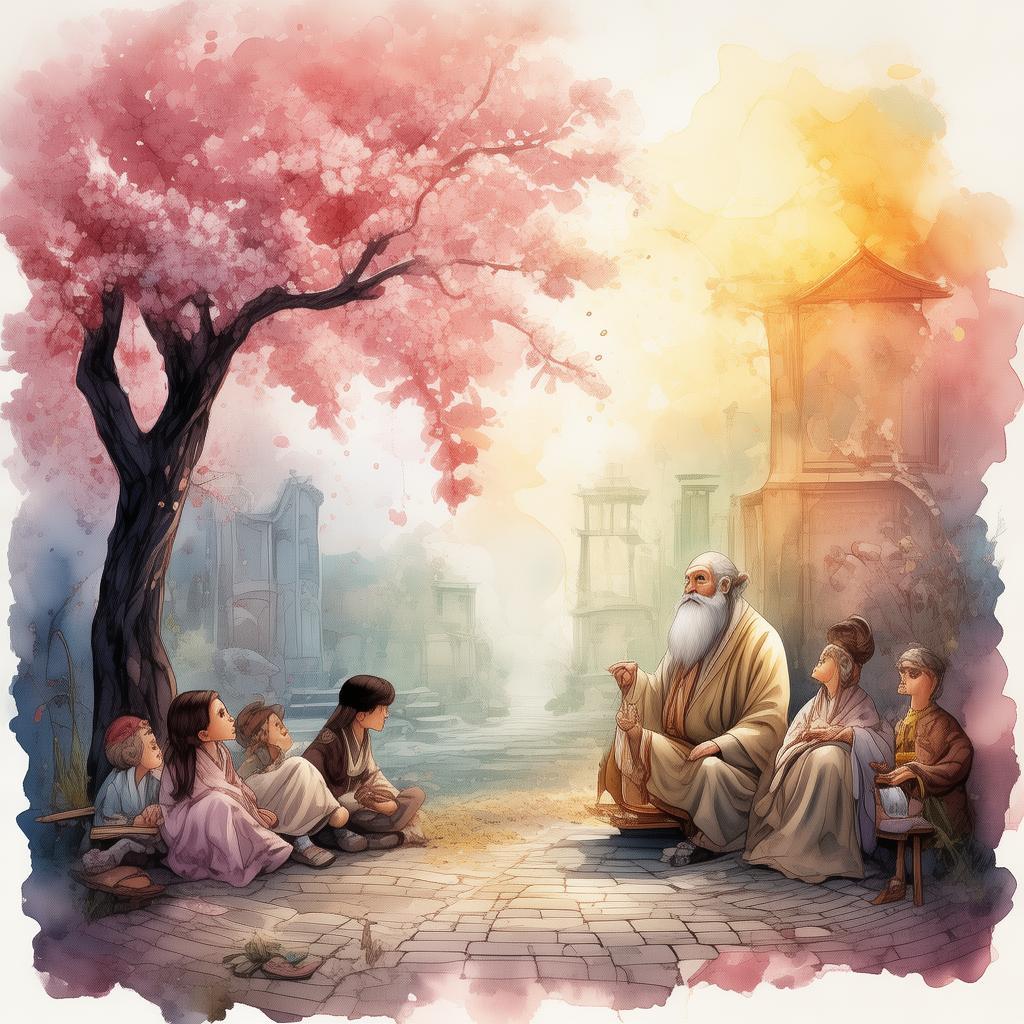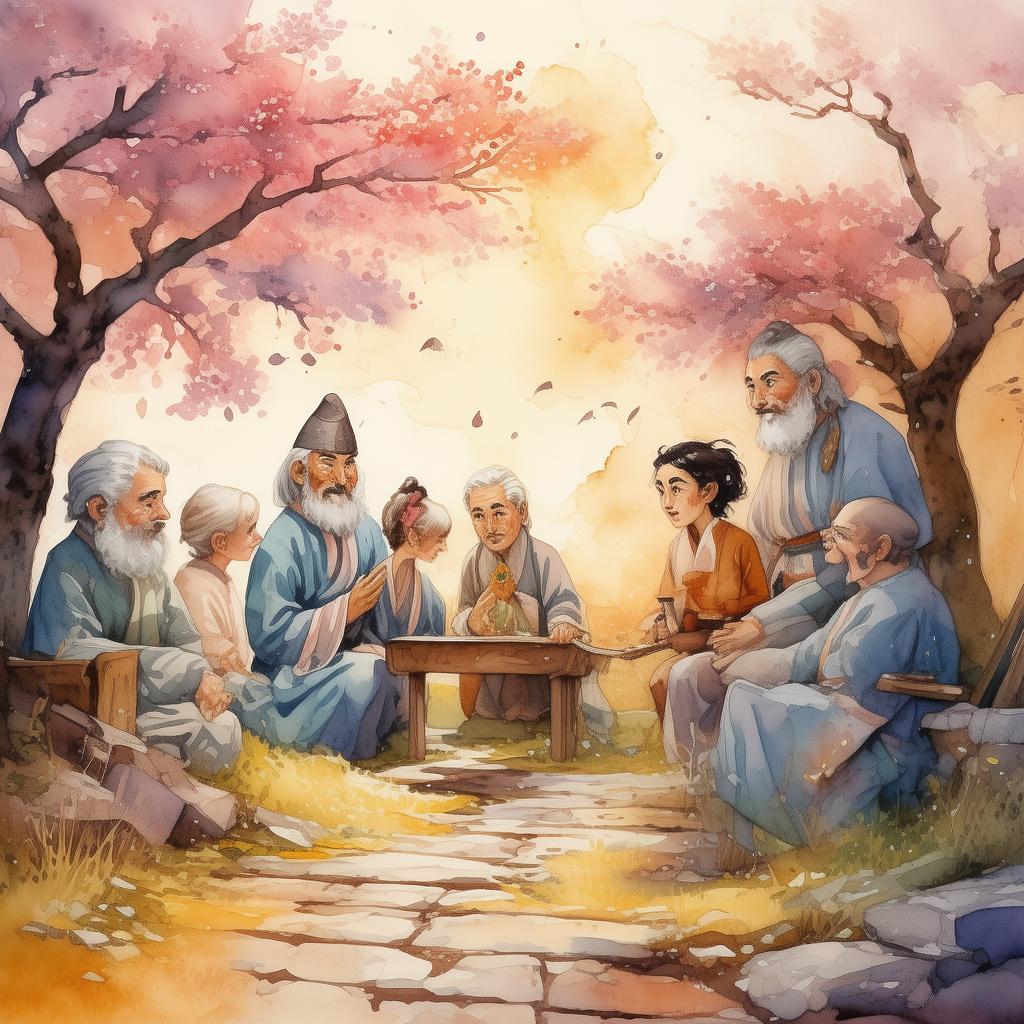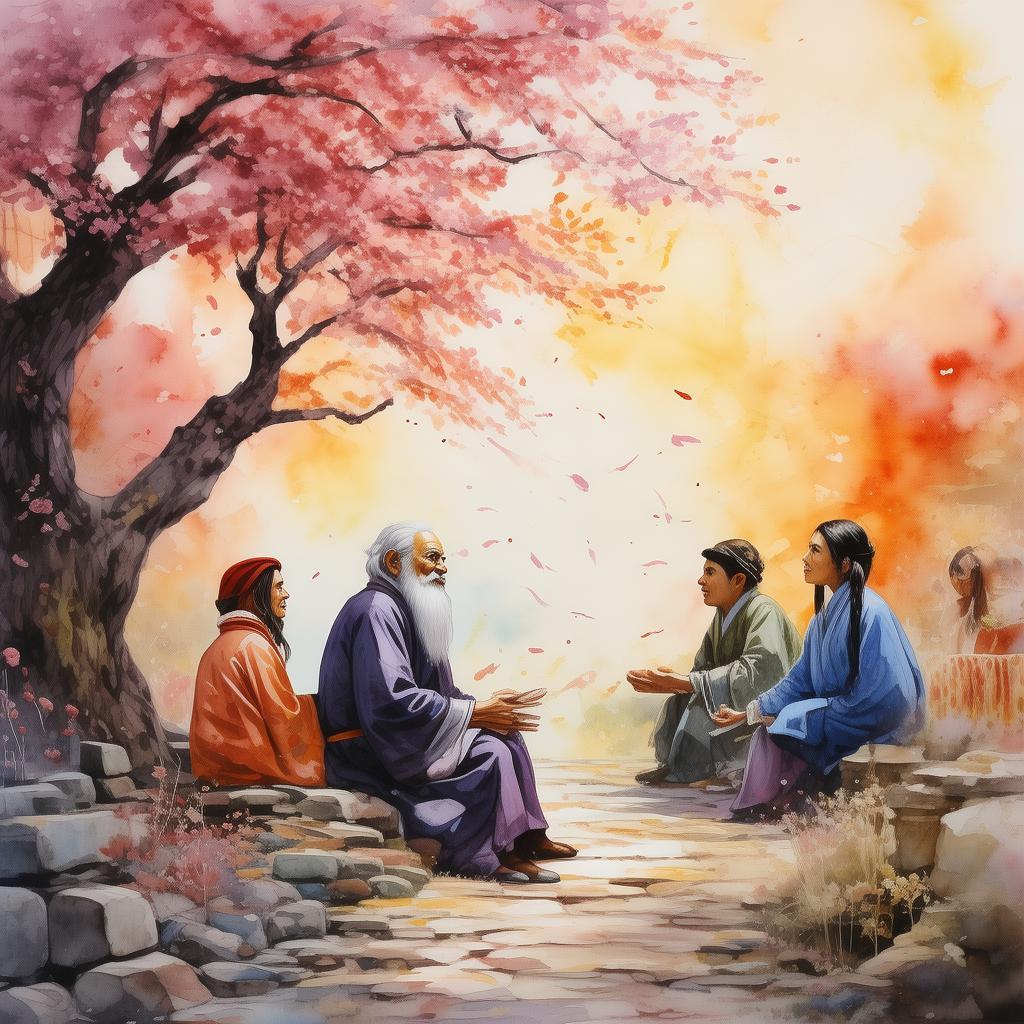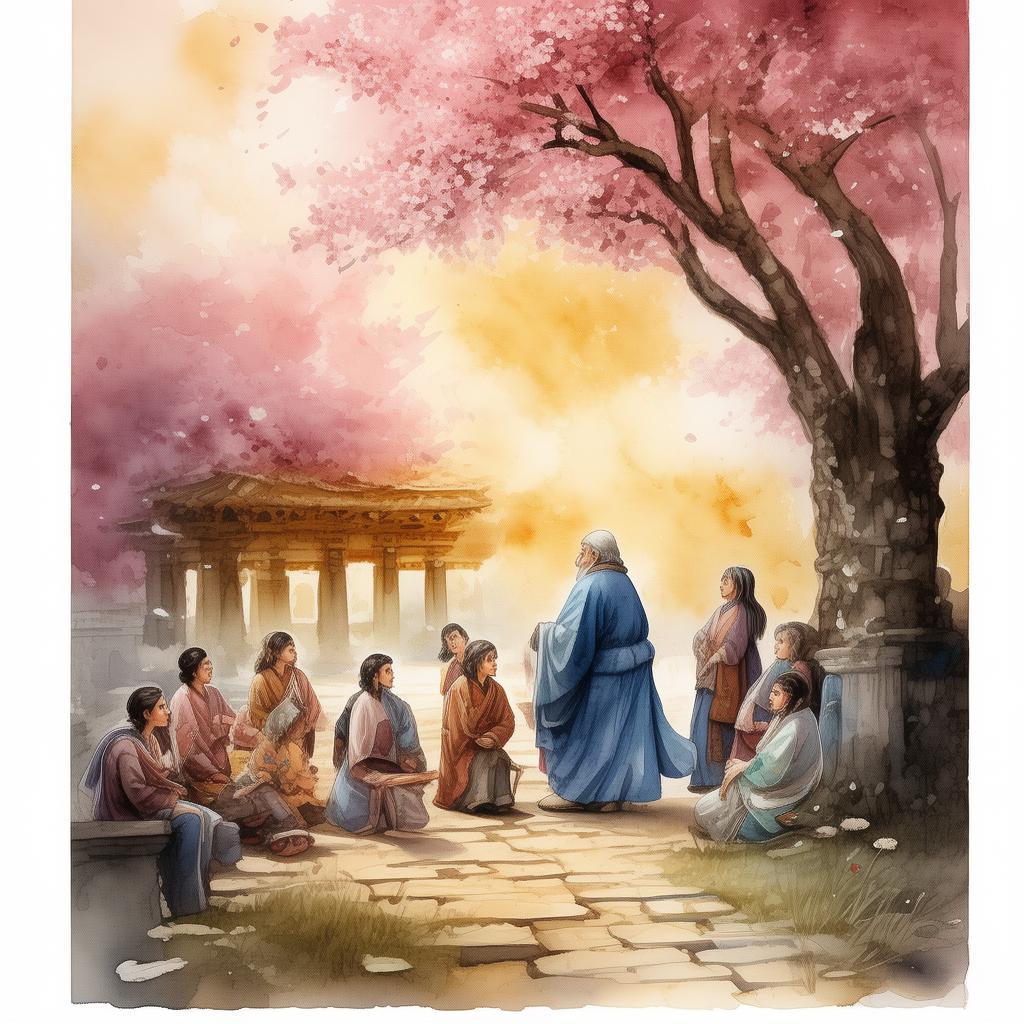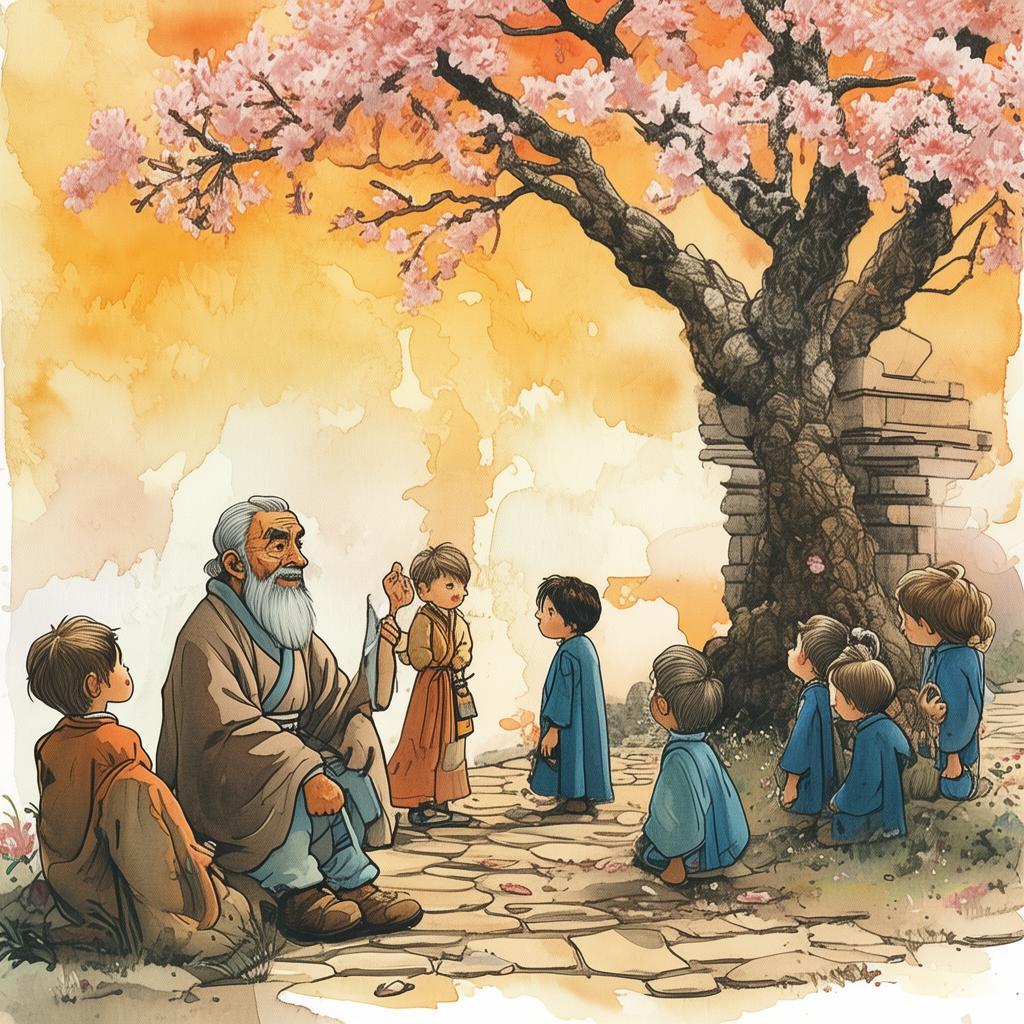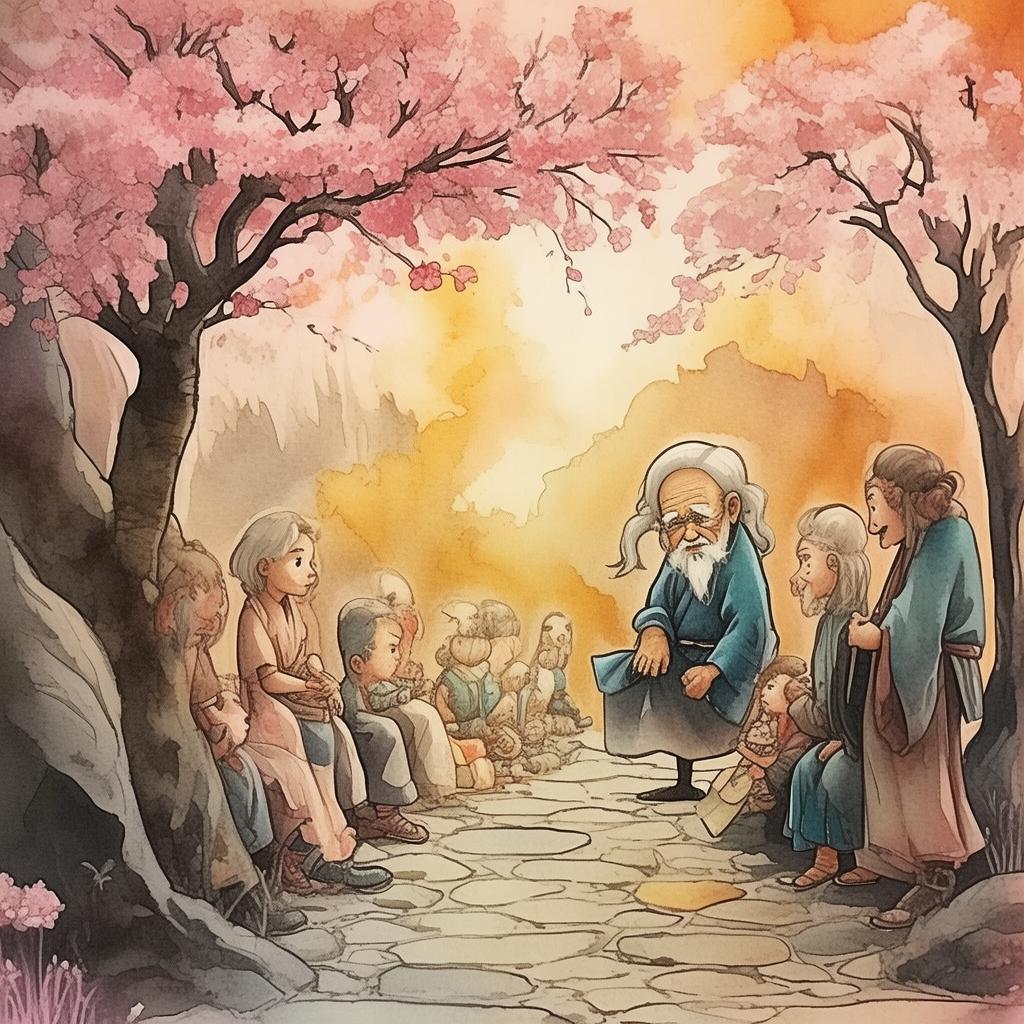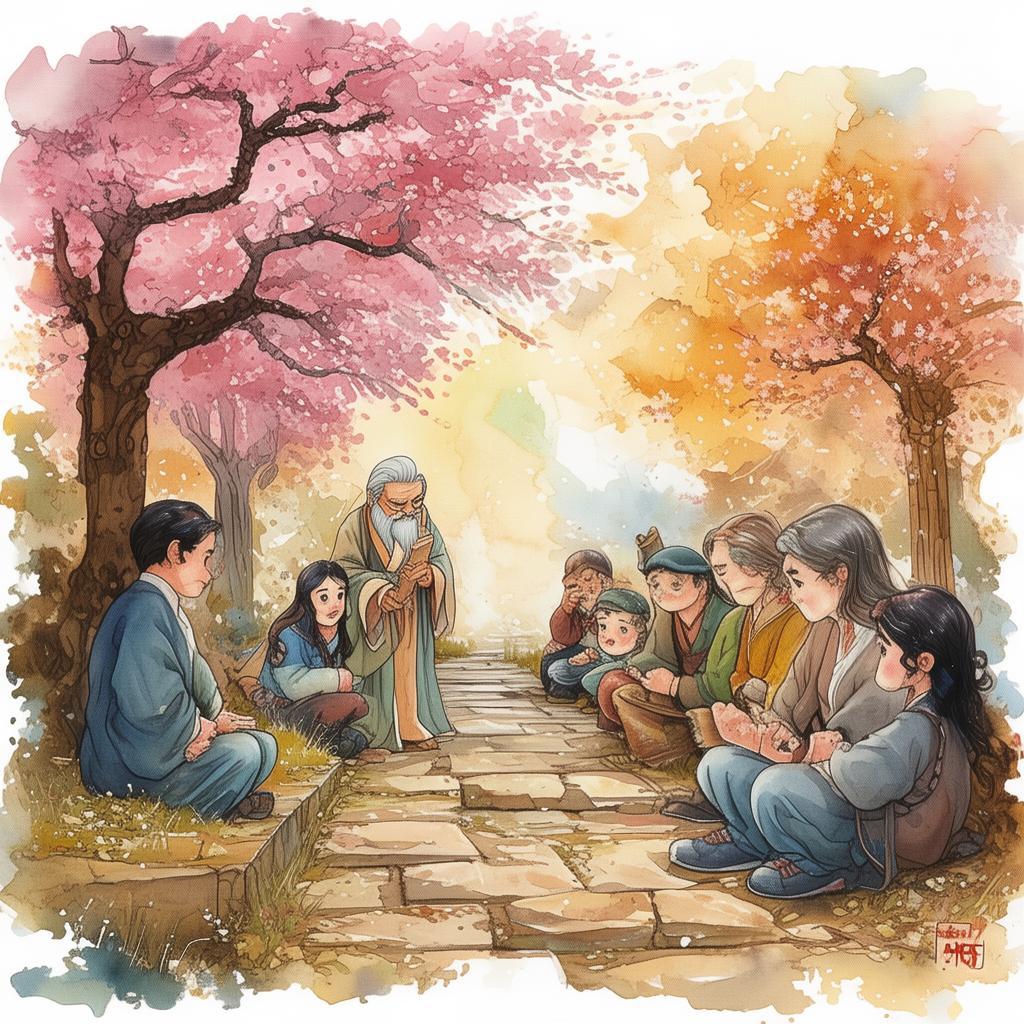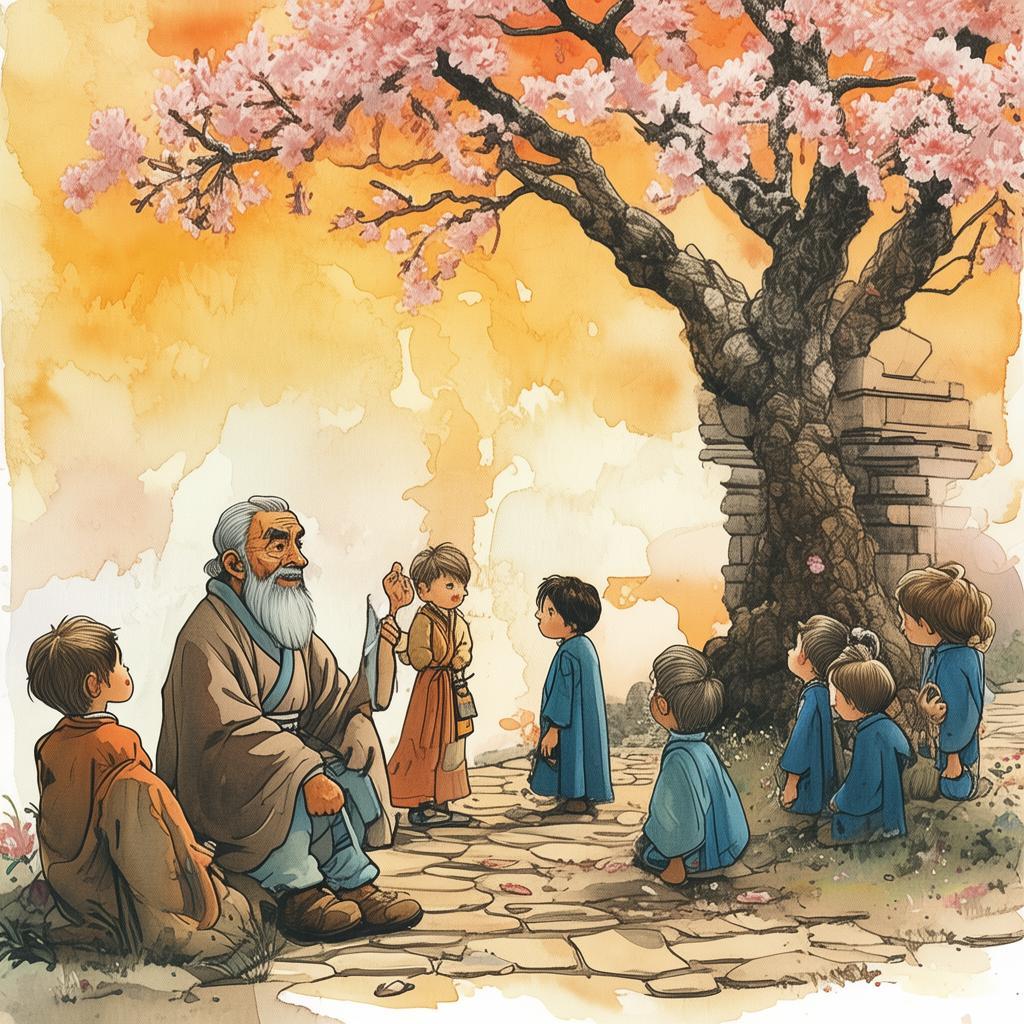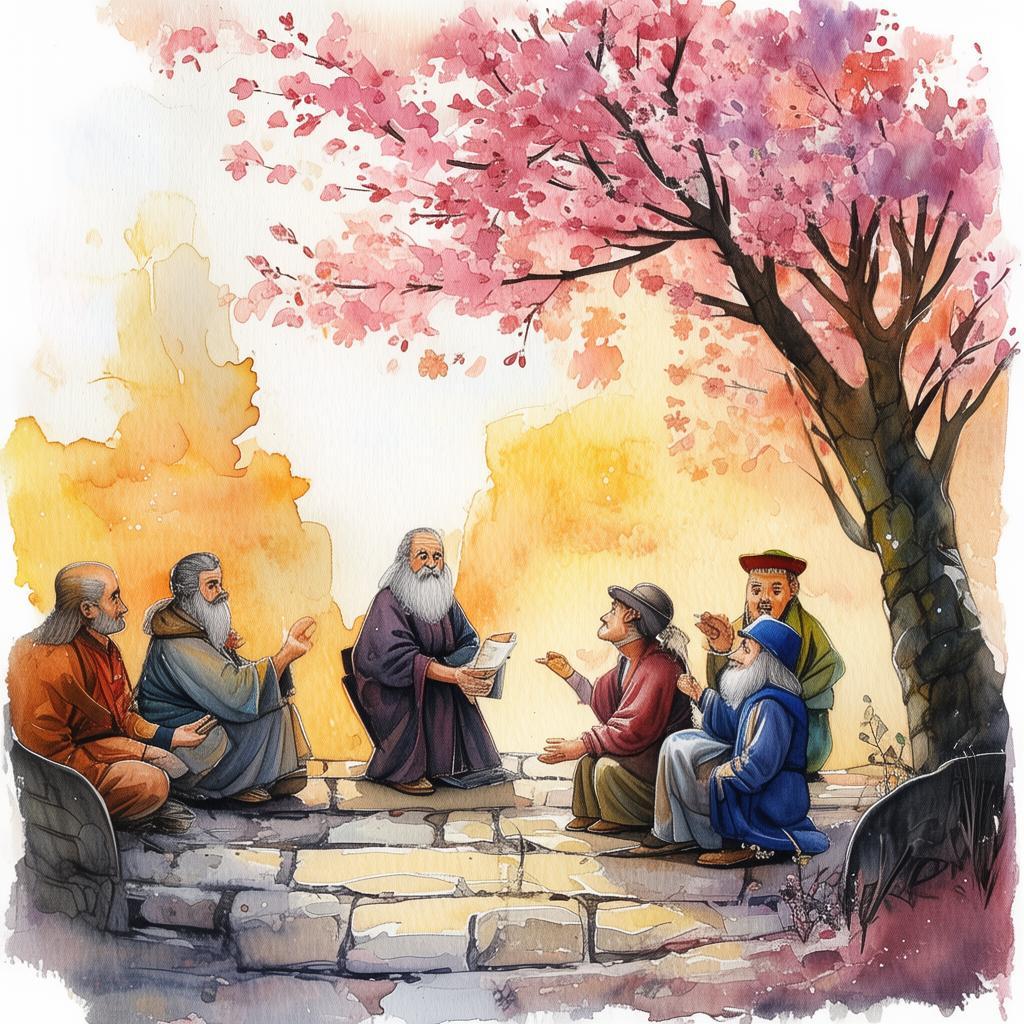The Luthier's Lament in the Age of the Internet
In the heart of a bustling city, there stood a small, dimly lit workshop. It was a sanctuary for an ancient art, the art of lutherie. Within its walls, a man named Lin, known to all as the Luthier of Harmony, toiled with dedication and passion. His hands, calloused from years of crafting, moved with a grace that seemed to dance with the strings of the instruments he lovingly created.
The workshop was filled with the scent of wood and the sound of saws, as Lin worked tirelessly to create the perfect balance between form and function. His latest project was a violin, its curves and contours reflecting the beauty of traditional craftsmanship. The strings, yet to be tuned, lay silent, waiting for the soul of the music to be infused into them.
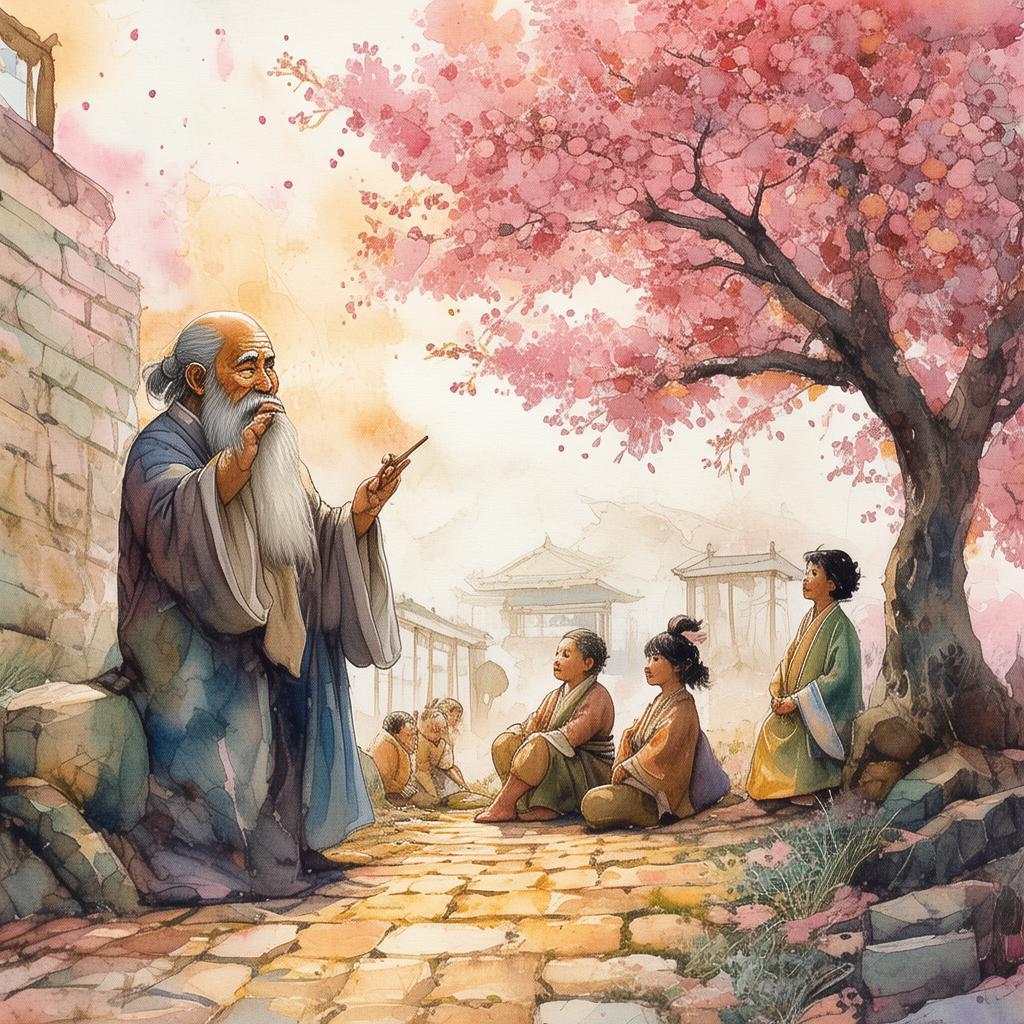
But the world outside the workshop was changing. The age of the internet had dawned, and with it, a new wave of modernity. People were no longer interested in the delicate touch of a luthier's hands; they preferred the convenience of mass-produced instruments that could be purchased with a few clicks online. The luthier's art was being overshadowed by the allure of the digital world.
Lin felt the weight of this change pressing down on him. He watched as the number of customers visiting his workshop dwindled, replaced by the glow of computer screens and the hum of online transactions. The once vibrant community of musicians and enthusiasts had become a shadow of itself, ensnared by the siren song of the internet.
One day, as Lin sat at his workbench, a young man named Wei walked into the workshop. Wei was a musician, but unlike the old timers who had once filled the streets with their melodies, he was a product of the digital age. His hands were nimble with the touch of a keyboard, not a bow, and his eyes sparkled with the light of the screen.
"Good day, Mr. Lin," Wei greeted, his voice tinged with a hint of reverence. "I've heard tales of your craftsmanship and would like to commission a violin from you."
Lin's heart leaped. He had not had a customer in months, and the thought of a new instrument was like a breath of fresh air. He began to sketch the design, his pen gliding across the paper with a passion that had almost been lost.
As the days passed, Lin worked tirelessly on the violin. He chose the finest wood, selected strings with care, and toiled over the intricate details. The instrument took on a life of its own, its form becoming more than just wood and strings; it was a vessel for the music that would soon fill its soul.
The day of the delivery arrived. Wei was there, his eyes wide with anticipation. Lin handed him the violin, its strings still unplayed. "It's done," he said simply.
Wei took the violin, its weight and craftsmanship evident. He ran his fingers over the strings, the wood, and then, with a deep breath, he drew the bow across the strings. The sound that emerged was pure, rich, and full of emotion. It was the sound of a luthier's soul, the essence of his craft, coming to life.
But something was different. Wei looked at Lin, and Lin looked back. There was a connection, a shared understanding that transcended words. In that moment, Lin realized that the internet had not diminished the value of his craft; it had merely shifted the way it was experienced.
Lin decided to take a leap of faith. He began to use the internet not as a replacement for his workshop, but as a means to share his art with the world. He started a blog, posting stories of his craft, the history behind the instruments, and the music that had inspired him. He invited musicians to visit his workshop, to see the process, to feel the connection that the internet could not replicate.
The response was overwhelming. Musicians from all over the world began to visit the workshop, seeking not just instruments, but the experience of craftsmanship and the connection that only a luthier could provide. The community that had almost vanished returned, and with it, a renewed sense of purpose for Lin.
The Luthier's Lament in the Age of the Internet became a story not just of survival, but of triumph. Lin had realized that the essence of his art was not in the creation of instruments, but in the connection between the craftsman, the instrument, and the music. The internet had not destroyed this connection; it had simply provided a new platform for it to thrive.
And so, the workshop remained, a beacon of tradition in a world of modernity. The luthier's lament had given way to a song of hope and renewal, a testament to the enduring power of craftsmanship and the human connection that it fosters.
✨ Original Statement ✨
All articles published on this website (including but not limited to text, images, videos, and other content) are original or authorized for reposting and are protected by relevant laws. Without the explicit written permission of this website, no individual or organization may copy, modify, repost, or use the content for commercial purposes.
If you need to quote or cooperate, please contact this site for authorization. We reserve the right to pursue legal responsibility for any unauthorized use.
Hereby declared.
